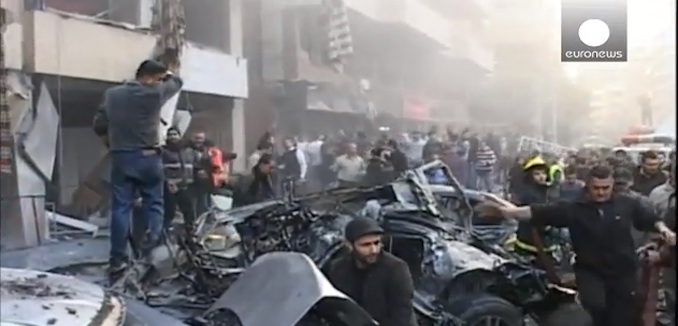A massive car bomb – which yesterday tore through Hezbollah’s south Beirut stronghold of Dahiyeh killing at least five people and injuring scores – marked the point at which Lebanon succumbed to the almost three year Sunni-Shiite conflict raging in neighboring Syria, according to an extended regional analysis published yesterday in the Weekly Standard.
With rumors spreading that the bombing may have been the work of the Abdullah Azzam Brigades, a Sunni jihadist group with ties to al Qaeda, it seems that this was the latest in a series of moves indicating that the regional conflict with Syria as its red-hot center is growing ever wider, now encompassing all the Levant, from Baghdad to Beirut. In the Lebanese capital alone, within a one-week span a former Sunni minister was assassinated, Saudi Arabia bought a $3 billion share of a national army heavily infiltrated by Hezbollah, and then today the Party of God was targeted on its home turf.
Hudson Institute senior fellow Lee Smith described the dynamic as one in which U.S. efforts to stay out of the sectarian conflict have generated an impression, across the region, in which “the United States is seen to be siding with Iran and its allies.” Inside Lebanon the attack will heighten criticism of Hezbollah for dragging Lebanon into the Syrian conflict and thereby generating a wave of jihadist blow-back that has already killed scores. The Christian Science Monitor yesterday headlined its coverage as “Sunni payback for Hezbollah’s help to [Syrian ruler Bashar] Assad?” Meanwhile Hezbollah deputy chief Naim Qassem focused on Israel.
Hezbollah deputy chief Naim Qassem addressed the Beirut blast Thursday, saying “There is no significance of the perpetrator, what is important is that it wants to divert attention away from Israel and weaken Lebanon that is standing firm against Israel.
[Photo: euronews / YouTube]




